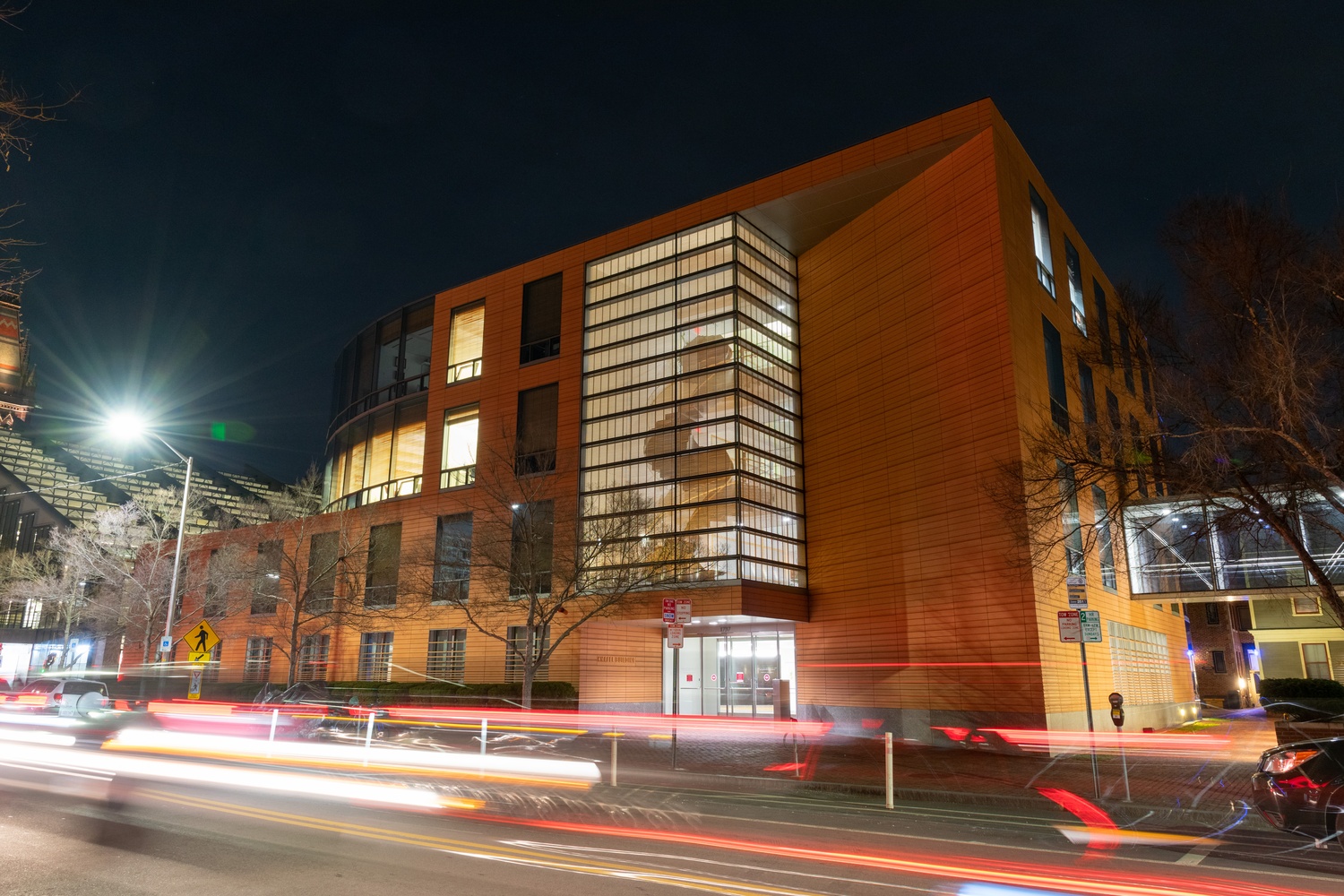
News
Harvard Grad Union Agrees To Bargain Without Ground Rules

News
Harvard Chabad Petitions to Change City Zoning Laws

News
Kestenbaum Files Opposition to Harvard’s Request for Documents

News
Harvard Agrees to a 1-Year $6 Million PILOT Agreement With the City of Cambridge

News
HUA Election Will Feature No Referenda or Survey Questions
‘A Very Frightening Picture’: Harvard Professors Discuss Trump’s International Impact at Forum

Harvard professors analyzed the international implications of President-elect Donald Trump’s 2024 win at a Wednesday afternoon Weatherhead Center for International Affairs forum.
Weatherhead Center Director Melani Cammett moderated the event, which featured Harvard Department of Government professors Joshua D. Kertzer and Daniel Ziblatt and Harvard Kennedy School Professor Pippa Norris. The professors discussed the executive power available to Trump and the potential global impacts of his second term.
Ziblatt said there are three key differences between this election cycle and that of 2016: Trump has now come to power without much aid from the Republican Party, the Supreme Court is now heavily Republican-leaning, and Trump has criminal immunity from any actions he carries out during his presidency as ruled in Trump v. United States.
“You add all this together, and it does give one a very frightening picture,” Ziblatt said. “His presidency has a much freer hand to do what authoritarians have done throughout time. That is, harassing and prosecuting opponents.”
Ziblatt added that Trump will have more freedom to enact the policies he promised supporters, such as “mass, deep, and disruptive deportation of immigrants, the hollowing out of the federal bureaucracy, replacing scientists and experts with loyalists, the use of the military and the insurrection act against protesters, rampant political corruption.”
Ziblatt described a worldwide “anti-incumbent wave” in which citizens across the world have become dissatisfied with the status quo, resulting in incumbents losing elections.
"The genius of democracy is its self-correcting nature,” Ziblatt said. “But the problem, of course, is if the person being elected into office is the kind of threat that it seems, and I just described, then this does disrupt this happy self-correcting logic of democracy.”
Kertzer also spoke about the international anti-incumbent wave.
“I think given the broader international and transnational dimensions here, there’s clearly more that’s going on,” he said.
“Obviously, there are 7 billion people on the planet who are affected by American foreign policy and 6.7 billion of them don’t get a vote, right?” Kertzer said.
During the forum, Norris said much of the American public is familiar with the range of threats of Trump’s second term, from using “military force against his political opponents” to firing “thousands of career public servants.”
“When he makes claims like this in the rhetoric, is it essentially something that should be taken literally?” Norris said. “Is it simply a performance?”
Norris also analyzed what the results of the election mean “for who we are, for our identities and for our beliefs and our values.”
“We find that those who voted for Harris think that there are tremendous threats to democracy,” Norries said. “But for Trump supporters, I think they were also motivated by a genuine commitment to their vision of democracy and their vision of electoral integrity.”
Norris said she worries about Trump’s second term leading to weaker checks and balances and executive aggrandizement.
“In the second term, it could again be the serious risks that we see with these other strongman leaders,” she said.
Cammett said American democracy serves as a “bellwether” for the rest of the world, making the results of the 2024 election important to democracy abroad.
“America is a shining city on the hill, but the fact is that a lot of countries and citizens abroad look at the experience of American democracy as an indicator of the fate of democracy in the world,” she said.
Want to keep up with breaking news? Subscribe to our email newsletter.
Most Read
- Trump Administration To Review Billions in Federal Funding to Harvard
- Fulbright Funding Freeze and Silence from Harvard Leaves Scholars with Questions
- I Was Hillel President. Trump Claims His Funding Cuts Help Jews — He’s Wrong.
- 17 Senators Call for Release of HMS Researcher Kseniia Petrova
- Center for Middle Eastern Studies Leaders Dismissed for Alleged Lack of Balance in Events on Palestine, Harvard AAUP Says
From Our Advertisers

Over 300+ courses at prestigious colleges and universities in the US and UK are at your disposal.

With innovative financial tools combined with financial education, Collegiate empowers students to take control of their finances and build confidence in their money management skills.

Serve as a proctor for Harvard Summer School (HSS) students, either in the Secondary School Program (SSP), General Program (GP), or Pre-College Program.

With an increasingly competitive Law School admissions process, it's important to understand what makes an applicant stand out.

Welcome to your one-stop gifting destination for men and women—it's like your neighborhood holiday shop, but way cooler.

Admit Expert is a premium MBA admissions consulting company, helping candidates secure admission to top B-schools across the globe with significant scholarships.
